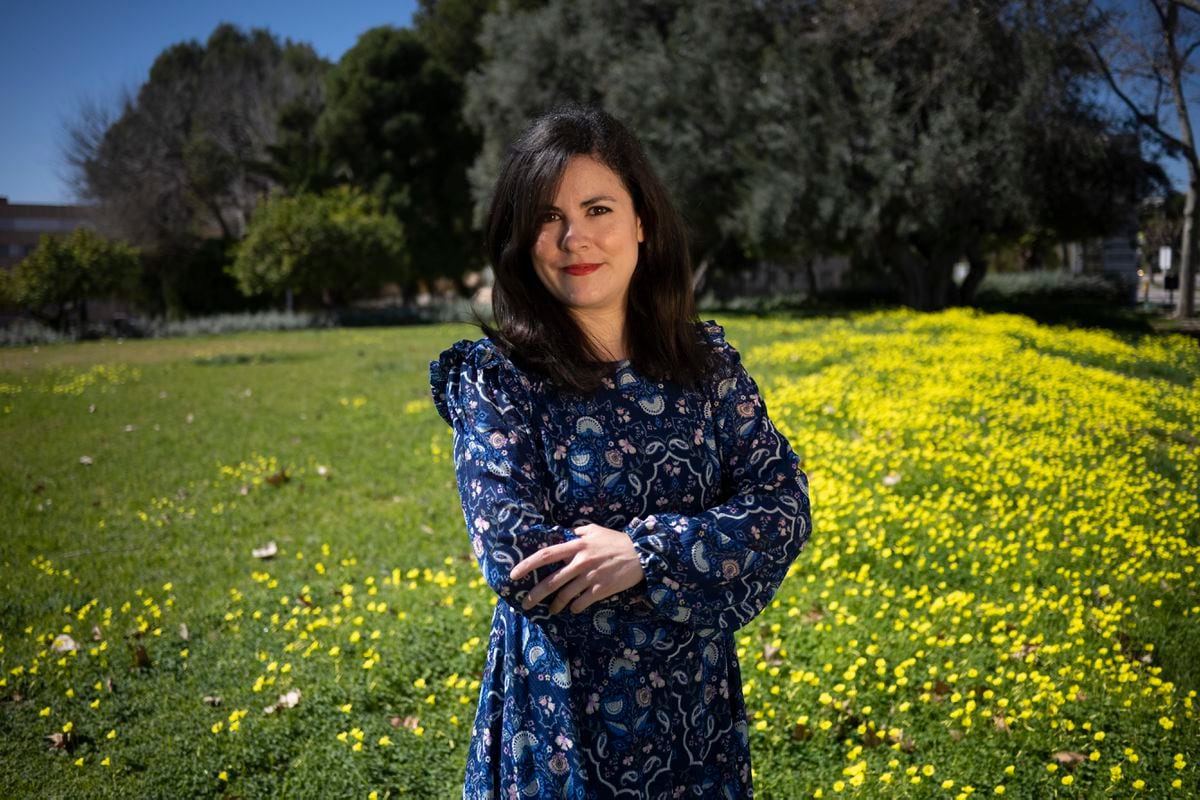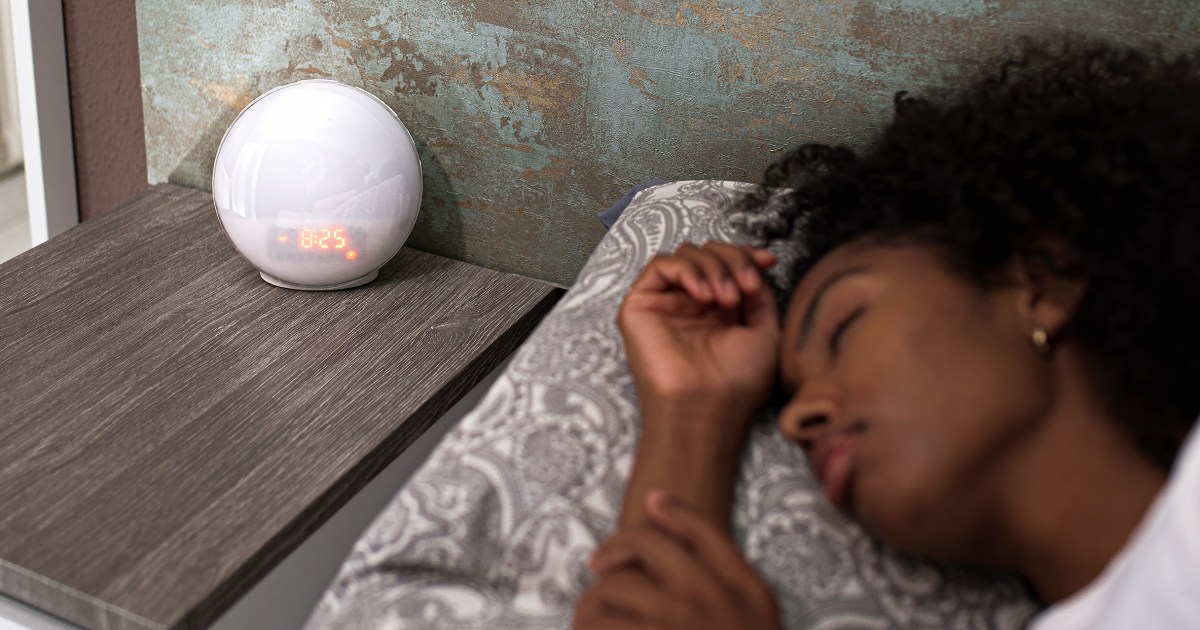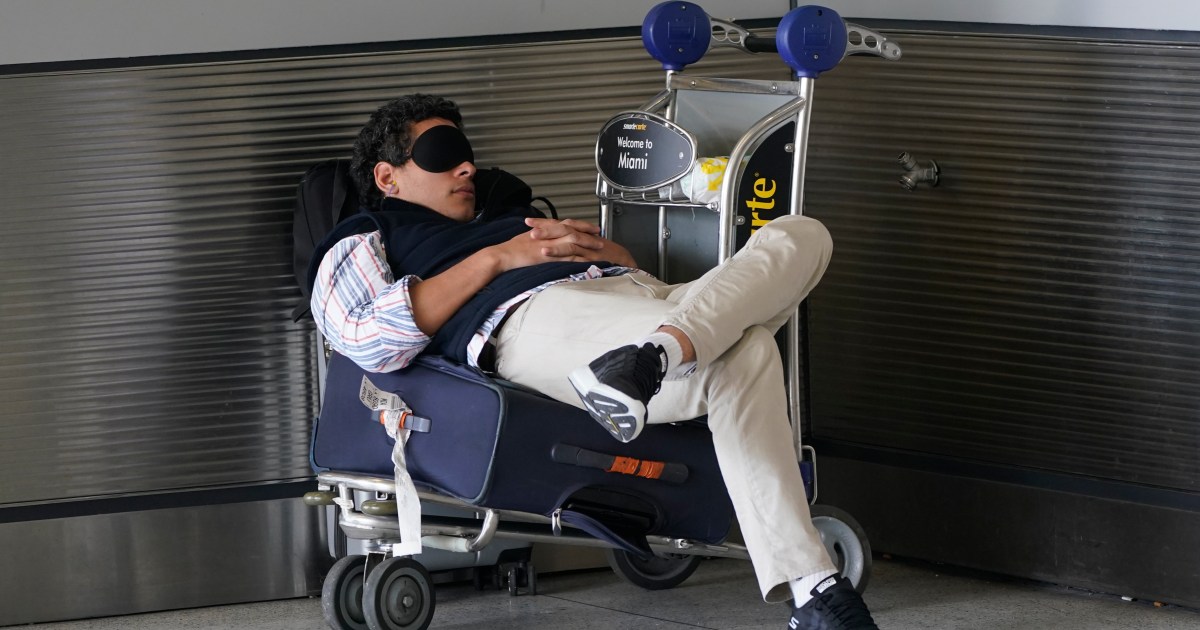Mythology, religion and art in all its aspects are full of references to sleep and the difficulty to fall asleep.
Writers like Jorge Luis Borges, Julio Cortázar, Juan Rulfo or Sylvia Plath suffered from insomnia and spoke of it in their works.
Franz Kafka also narrated in his letters his sleeping problems, which even led to a scientific study published in
The Lancet
that attempted to analyze the influence that insomnia could have had on the Czech author's work.
More information
Sleep problems and bad habits: these are the harmful health effects of shift work
“There have been very prolific and successful authors who have suffered from insomnia.
One tends to think, for example, that Kafka's work is highly conditioned by this insomnia.
But we can also ask ourselves what these geniuses like Kafka would not have done if they had had a good rest, what level their work would have reached without these problems”, reflects María Ángeles Bonmatí (Murcia, 36 years old), PhD in Physiology from the University of Murcia and researcher in the field of chronobiology.
In her book
Let nothing take away your sleep from her
(Crítica, 2023), Bonmatí makes a staunch defense of sleep and good sleep as a fundamental pillar of health.
“The cases in which an artistic and even economic benefit can be extracted from a lack of sleep are rare,” she says.
Normally, he adds, it is just the opposite: problems begin to accumulate.
Ask.
"Sleeping is distracting yourself from the world," Borges wrote in
Funes el memorioso
.
Answer.
In certain contexts it seems that the idea that sleeping is wasted time, unproductive time, has taken hold, because while we sleep we neither produce nor consume.
It seems that this goes against what the world in which we live demands.
Q.
Sometimes it even seems that today sleeping little was even a matter of status.
R.
I remember that when I was a teenager I had a teacher who boasted in front of us, his students, that he slept very little, no more than five hours a day.
He told us that the more he slept, the less he lived.
It is a totally wrong view.
There are people, it is true, who need to sleep less and who are probably fine with five hours of sleep, but that does not mean that the population has to set that as a goal.
On the contrary.
For most people, little sleep is going to mean being much less productive in their day to day and having their physical and cognitive abilities diminished.
Q.
Regarding productivity, you explain in the book that having the population sleep dead is not, in any case, a very profitable alternative.
R.
The bad sleep of the citizens supposes a cost of between 50,000 and 60,000 million a year in countries like the United Kingdom or Germany, which supposes more than 1.5% of the GDP of these countries.
The impact of lack of sleep on productivity is evident, as we said, but we also know perfectly well that poor quality sleep is linked to the appearance of a large number of diseases, which implies significant economic costs.
So welcome this argument to highlight the importance of sleep, because many people do not understand beyond the economic data.
The bad sleep of citizens supposes a cost of between 50,000 and 60,000 million a year
Q.
“Life is a dream”, is the title of the second chapter of your book.
R.
It is that life cannot be understood without sleep.
That is why I also introduced a chapter on sleep in other animals, to convey the idea that sleep, despite presenting a series of disadvantages (it disconnects us from the environment and reduces our ability to react), is a fundamental physiological process.
Otherwise, it would not have been preserved throughout our entire evolution as a species.
Q.
This year World Sleep Day is celebrated under the motto “sleep is essential for health”.
How does little sleep harm our health?
R.
Bearing in mind that sleep is essential for our entire body to function properly, its lack will affect all our physiological processes.
For this reason, little sleep has been related to the appearance of metabolic diseases and cardiovascular diseases, with a greater propensity to develop infectious diseases or with a greater probability of suffering from certain types of cancer and developing neurodegenerative diseases such as Alzheimer's.
And to this we must add the issue of mental health, with which sleep has a two-way relationship: if there is a lack of sleep, sooner or later mental health problems will appear, but many times sleep problems are also a symptom that something is wrong with our mental health.
In fact, in many cases of depression or anxiety,
The author María Ángeles Bonmatí, in the Faculty of Biology of the University of Murcia, where she investigates chronobiology, on March 15. ALFONSO DURAN
Q.
It is estimated that in Spain more than 30% of citizens wake up every day with the feeling of not having had a good night's sleep or end the day very tired.
Are we facing a public health problem?
R.
Taking into account all the implications of not sleeping well, I think it is a subject that should be paid much more attention than we are currently paying.
Among many other things, the authorities should protect the environment in which we rest.
To sleep we need darkness and silence.
Usually the issue of silence, above all, leaves much to be desired in cities.
There are many people who cannot sleep well at home due to the noise of nightlife, or the noise of street cleaning machinery, which often does not even respect rest hours.
Q.
You explain in the book that today we know that, to improve our sleep quality, it is important that there is a good contrast between day and night: good lighting during the day (if it is natural, better) and darkness at night.
R.
We know, but nevertheless, we have a pattern, if not inverted, then with a significant lack of contrast.
We spend our days indoors, often very poorly lit, I have even seen offices where there are no windows.
And then we leave work and we get hooked on the light of the screens or we get into a hyper-lit shopping center at nine at night.
In addition, we eat dinner very late, and that also makes us go to sleep with a digestive process underway, which is not conducive to sleep.
Our lifestyle, of course, does not favor us sleeping well.
To sleep well we need darkness and silence.
That leaves a lot to be desired in the cities.
Q.
We live more and more stressed, glued to the screens, in cities that are more and more illuminated, with more noise, and with more heat due to climate change.
It is not a very rosy scenario for sleep.
R.
The truth is that no.
It has already been shown that sleep time is being lost as the minimum temperatures reached during the night increase.
In any case, I believe that if we become individually and collectively aware of this issue, we can begin to protect the sleep environment.
Q.
We were few and this weekend
the time change
will start ...
R.
(Laughter) This is a very controversial topic, but as a chronobiology researcher I have to say that the scientific consensus at this moment advocates abolishing the time change and maintaining standard time, which is the most appropriate for physiology.
From the scientific and health point of view, the conclusion is clear, but there are other social and economic interests that play against it.
You can follow
MATERIA
on
,
and
, or sign up here to receive
our weekly newsletter
.



/cloudfront-eu-central-1.images.arcpublishing.com/prisa/S4BTGDA7TFEMFBJYT4VGJQNXEY.jpg)

/cloudfront-eu-central-1.images.arcpublishing.com/prisa/MKA7DYZMDZECTCMZXQEAEUDL4E.jpg)



/cloudfront-eu-central-1.images.arcpublishing.com/prisa/JFSN4SO2IVAJ5EAUCRKFSUYKTM.jpg)





